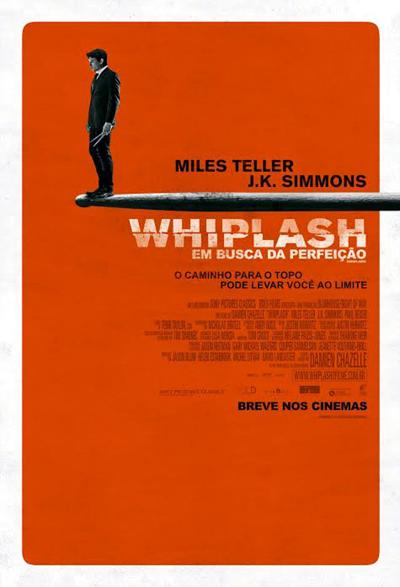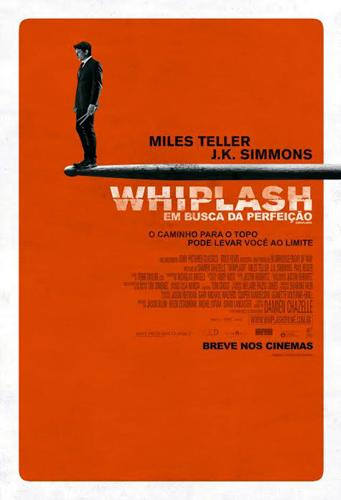“Whiplash” is a film unlike any character study I’ve seen. Each scene is escalated further until it can’t stand under its enormous weight and finally cracks. There are many cracks throughout the movie.
Director Damien Chazelle has created a relentless beast in “Whiplash.” It follows the relationship of aspiring jazz drummer Andrew Neyman (Miles Teller) and his mentor, Terence Fletcher (J.K. Simmons), a highly revered instructor and conductor at the Shaffer Conservatory, the fictitious school in which Neyman is enrolled. Initially excited at the prospect of performing under the tutelage of Fletcher, Neyman quickly realizes that his new mentor’s teaching methods are manic, profanity-laced and sometimes violent. The film quickly warps the image of a typical mentor-protégé film into something more thrilling and dark.
Every aspect of “Whiplash” works toward an ultimate theme and tone for the movie. The most obvious part is the acting, as Teller and Simmons both give maybe their best performances yet. Simmons is the main attraction. His turn as the unwavering Fletcher demands your attention without becoming over the top. The character’s presence should command scenes, and Simmons does it beautifully. He spits the script’s vulgarity like it’s a weapon, asserting his dominance over anyone who may disappoint him. But Teller, who has solidified himself as the best young actor right now, is the hidden star of the show. He captures the build-up and destruction of Neyman’s ego throughout the film through the way he interacts with other people, changes in his body language and conversational mannerisms.
Chazelle is a vital part of the success of these performances and the movie as a whole. His script is always moving the movie forward like one big crescendo. It does a great job of making Fletcher a logical, albeit monstrous, antagonist. He is steadfast and unapologetic in his teaching methods, because like Neyman dreams of being one of the greats, Fletcher dreams of creating one of the greats. He’s not an agreeable character, but the script humanizes him to the point of being worthy of the audience’s empathy.
Perhaps the most surprising quality of “Whiplash” is Chazelle’s directing. There’s a trend in character dramas to have silence punctuate impactful scenes that often works well, but Chazelle’s use of sound makes the scenes and exchanges throughout “Whiplash” really memorable. The film opens with only the sound of a drum roll getting faster, and that sets the tone for the film perfectly. Throughout the movie, crescendos of drum and jazz music are used to complement and sometimes overwhelm the intensity of a scene. And by using noise in such a way, it helps give more impact to the silence when it comes. It’s an interesting back and forth of an asset not explored enough in film.
“Whiplash” will have you sitting forward in your seat, though not for the usual reasons. From the leads of the film to the sound design, “Whiplash” will exhaust and horrify you. And you’ll love it from beginning to end.


